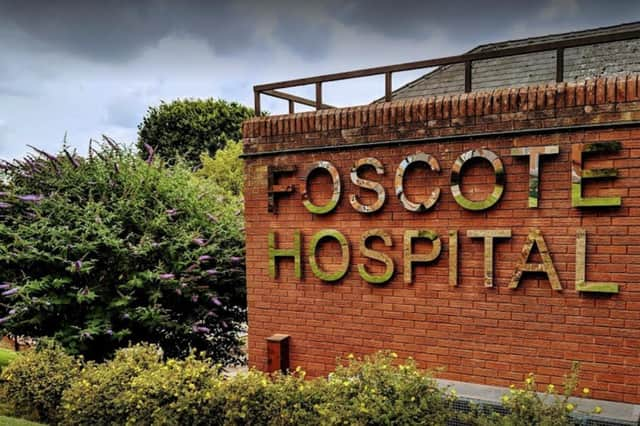Private hospital in Banbury is rated 'good' by the Care Quality Commission


The hospital is operated by The New Foscote Hospital Limited and is located off Hightown Road. The hospital was first opened in 1981 and was known as The Foscote Hospital. In 2019 the hospital was bought by a family investment fund and became known as The New Foscote Hospital. Since the purchase the hospital has been undergoing a transformation process.
The hospital has 14 inpatient rooms, a dedicated endoscopy suite, on-site MRI and physiotherapy. It provides surgery, medical care, outpatients, physiotherapy and diagnostic imaging.
Advertisement
Hide AdAdvertisement
Hide AdCQC inspectors said the service had enough staff to care for patients and keep them safe. Staff had training in key skills, understood how to protect patients from abuse, and managed safety well. The service mostly controlled infection risk well. Staff assessed risks to patients, acted on them and kept good care records. They mostly managed medicines well. The service mostly managed safety incidents well and learned lessons from them.
Staff collected safety information and used it to improve the service. Staff provided good care and treatment, gave patients enough to eat and drink and gave them pain relief when they needed it. Managers monitored the effectiveness of the service and made sure staff were competent. Staff worked well together for the benefit of patients, advised them on how to lead healthier lives, supported them to make decisions about their care and had access to good information.
Key services were available seven days a week. Staff treated patients with compassion and kindness, respected their privacy and dignity, took account of their individual needs and helped them understand their conditions. They provided emotional support to patients, families and carers.
The service planned care to meet the needs of local people, took account of patients’ individual needs and made it easy for people to give feedback. People could access the service when they needed it and did not have to wait too long for treatment.
Advertisement
Hide AdAdvertisement
Hide AdStaff felt respected, supported and valued. They were focused on the needs of patients receiving care. Staff were clear about their roles and accountabilities. The service engaged well with patients and the community to plan and manage services and all staff were committed to improving services continually.
The report said the outpatient service did not always follow best practices of Infection prevention and control, did not report all incidents appropriately on the hospital’s incident management system and the risk register for contained information that was not up to date.
The report found a number of areas of 'outstanding' practice but also gave the hospital a list of actions that should be improved upon. The full report can be found here.
* There were 1,767 surgery day cases and 256 inpatient episodes of care recorded at the hospital; of these 58 per cent were privately/ insured funded patients and 42 per cent NHS-funded.
Advertisement
Hide AdAdvertisement
Hide Ad* The endoscopy service was undertaking an average of 10 endoscopy procedures per week for patients over the age of 18 years.
* There were 10,151 outpatient total attendances; of these 64 per cent were privately/ insured funded patients and 36 per cent were NHS-funded.
* There were 1,007 physiotherapy attendances; of these 99 per cent were privately/ insured funded patients and 1 per cent were NHS-funded.
* The imaging service was undertaking an average of 24 plain film x-rays per month at the time of our visit. Ultrasound clinics were run mostly in the evenings and staff carried out approximately 120 scans per week; 80 per cent were NHS patients and 20 per cent were privately funded.